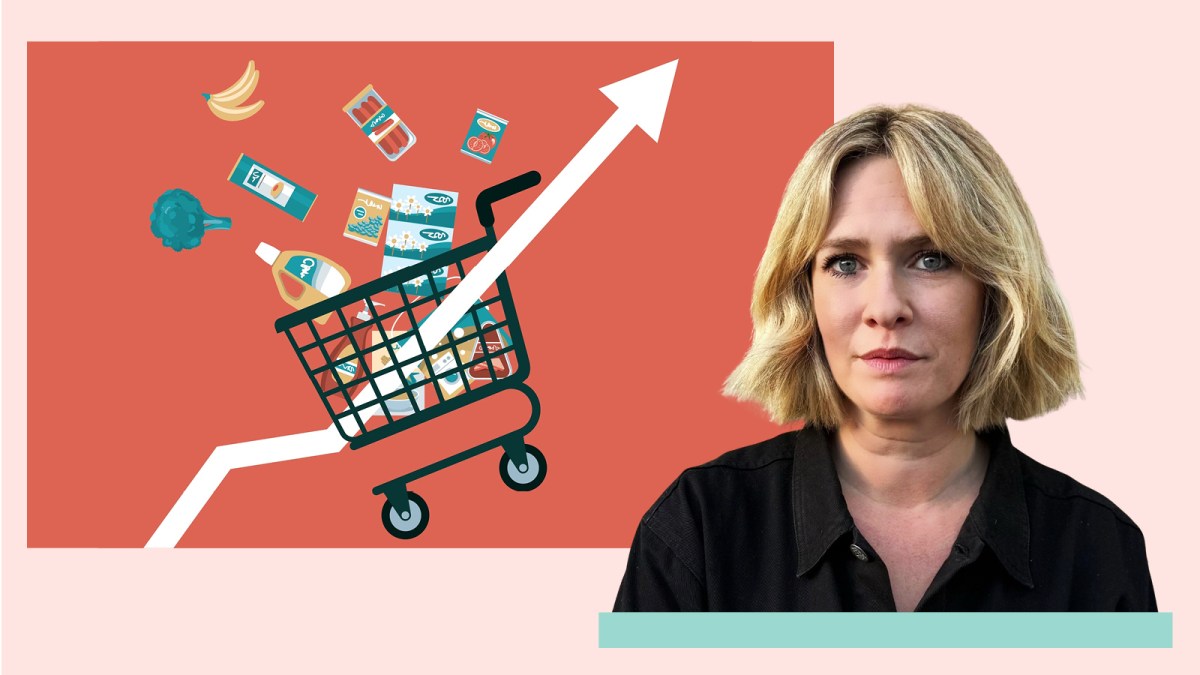Over the past year my group of school friends have all turned 40. There are six of us, and we used to celebrate every one of our birthdays together. By some miracle of timing, our birthdays were evenly spaced across the year, so there was always a big dinner to look forward to and not too many presents to buy at once. Not that that mattered particularly — we all waitressed in pubs after school, which meant cash in hand every Friday, plus tips. By 15 we were practically millionaires, out for dinner several times a week, convinced this was what adulthood would be like, only with less curly fries and acne.
Twenty-five years on, we can barely manage one get-together a year. Not because of our combined 12 children (though, yes, them too), but because everything costs so much: the trains, the restaurants, the basic logistics of being together.
We laugh about how much expendable cash we had as teenagers, and we laugh because if we didn’t we’d cry. This week new research from MoneySuperMarket’s Household Money Index found that parents with children under three now spend 76 per cent of their income on bills and essentials, leaving them with £2,400 less disposable income per year than the average person. School and childcare costs have risen 23 per cent in the past year. Thirty-five per cent of families with children under four say they’re struggling to make ends meet, while 46 per cent have experienced anxiety about paying essential bills. And 76 per cent have cut back on essentials just to cope — a quarter on food shopping, and many selling clothes or furniture to make ends meet.
However, it isn’t just parents feeling the squeeze. The same report found that the average Brit now spends £55.26 a day just to get by, an increase of 8 per cent from last year. Across a basket of everyday costs — from mortgages and groceries to gym memberships and subscriptions — everything has crept up: fuel up 18 per cent, mortgages 10 per cent, groceries 8 per cent and even the cost of pets, up 3 per cent. Life has become so expensive that “just existing” now feels like an indulgence. But when you add nappies, nursery fees and endless snacks into the mix, the pressure on parents becomes its own category of impossible.
None of this surprises anyone of course. Especially those of us who appear to be doing fine — the ones who own houses, have jobs, but can’t do anything spontaneous without a spreadsheet and a family meeting. One friend has cancelled her hair appointments — “the bleach costs more than my mortgage interest” — while another has stopped buying coffee altogether because it now feels like a “luxury hobby”.
I recently wrote about the motherhood penalty — the £65,000 drop in women’s earnings after their first child — and the outpouring of messages from women in precarious financial positions was overwhelming. We are in a full-blown parenting crisis. Even dual-income households, the ones doing everything “right,” are being bulldozed by the cost of childcare, housing, food and bills.
• The true cost of motherhood? Start with £65,000 in lost earnings
The numbers tell a brutal story, but what they rarely capture is the exhaustion, the mental arithmetic that now defines daily parenthood. The depression that can grip one parent and drag a whole family down. It’s easy to roll your eyes at parents moaning about money. But these are not lifestyle woes, they’re structural ones. Britain’s childcare remains among the most expensive in the world. A 2022 report found that British families spend 29 per cent of their wages on childcare, the highest share of any developed country. Added to this, wages are stagnating and the cost of literally everything is rising. And for all the talk of flexible work, the burden of care still falls, disproportionately, on mothers.
As I age, I’ve started to measure luxury not by what I spend money on, but by what I don’t have to. A week without a surprise bill — heaven. A walk around the park with a friend — life affirming. Half an hour of peace in your own house — priceless. These are small freedoms that now feel aspirational.
This past year, as my school friends and I each turned 40, we decided to buy joint presents for one another like we did when we were teenagers. Back then, we’d each contribute between £30 and £50 per gift. This year, it’s been £10.
We are all getting together again in February. The other day one of the group messaged to say there’s a spa nearby offering deals on lunch (treatments not included), but after one look at the prices, it was clear nobody was willing to commit. Within minutes we’d agreed we’d rather sit in our pyjamas and gossip on a sofa like teenagers than spend money in a spa.
The irony isn’t lost on us. At 15 we were out for dinner three nights a week, fuelled by waitressing tips, our whole lives stretching ahead of us. We assumed adulthood would be the same, just earning more and worrying less. Turns out, it’s the other way round.

